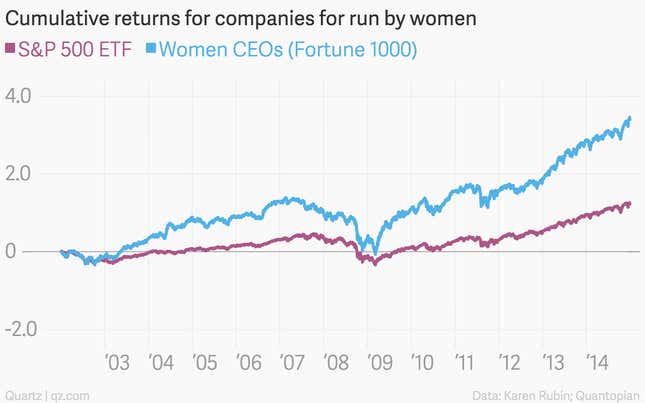Once again, a troubled company is hoping a woman can help turn it around. After three years of slumping sales, Taiwanese smartphone maker HTC has named Cher Wang, currently its chairwoman, as CEO, replacing Peter Chou.
In 2011, HTC’s global smartphone market share reached a peak of 11%—in the US, it even bested Apple and Samsung in shipments that year—but has since fallen to less than 2%.
In a statement released today, Wang, who cofounded HTC with Chou and returned to its day-to-day operations in 2013, said the company was looking beyond smartphones and focusing on new connected products, including its virtual reality headset, HTC Vive, which was unveiled earlier this month at Mobile World Congress.
Overall, women currently hold 4.8% of CEO roles at companies in the Standard & Poor’s 500 Index, and it’s especially rare for women like Wang to hold a joint CEO and chairwoman title. A 2013 study from Utah State University’s business and sociology departments analyzing Fortune 500 companies over 15 years found that women, as well as ethnic minorities, are more likely to be brought in as CEOs of poorly performing companies.
This might help explain why female CEOs, like Yahoo’s former chief Carol Bartz, are ousted at greater rates as well. Looking at outgoing CEOs from 2004 to 2013, 38% of women were forced out of their roles compared with 27% for men.
All that said, one recent study found women-led companies generally perform better. The analysis by Karen Rubin of Fortune 1000 companies with female CEOs from 2002 to 2014 found they produced 340% in returns, while the S&P 500 (albeit not directly comparable) saw only a 122% gain over the same period. There’s also a bit of evidence that women CEOs in the S&P 500 perform better than the average too.

